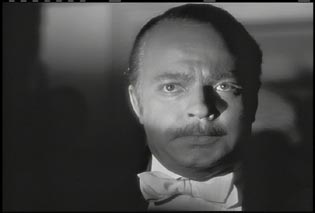
The film True Grit (Henry Hathaway, 1969) tells the story of Mattie Ross (Kim Darby) and her search for justice after her father is shot and killed. She takes it upon herself to see that the killer, Tom Chaney (Jeff Corey), is captured and put to death. For this arduous trek, she commissions the help of Marshall Rooster Cogburn (John Wayne). Together with a Texas Ranger, they track down Tom Chaney to put an end to his miscreant behavior. The film True Grit determines itself as a quintessential revisionist western with its unusually strong leading lady and its less than heroic hero.
Mattie Ross, the leading lady of the film, is not the archetypal damsel in distress present in most westerns. She is absurdly headstrong and self-sufficient, things she will not let anyone forget. When Mattie first meets Rooster Cogburn, she astonishes everyone with her forward nature. She sees Cogburn trying to roll himself a cigarette but doing it poorly. Instead of leaving well enough alone, she informs him that he’s not doing a very good job, takes it from him, rolls the cigarette properly, and sticks it back in his mouth. Cogburn is clearly taken aback at her actions, but something like this is just another day for Mattie Ross. Later when Mattie goes to see Cogburn at his home for business negotiations, she remarks “If I smelled as bad as you, I wouldn’t live near people.” She has absolutely no fear of offending or upsetting the people around her. When she meets La Boeuf (Glen Campbell), the Texas Ranger, they do not get along. Mattie even goes so far as to take a shot at Texans and the fact that, judging by La Boeuf’s appearance, they “cultivate their hair like lettuce.” The only time when Mattie seems remotely distressed is when she is captured by Tom Chaney and Ned Pepper (Robert Duvall), the bad guys for whom she has been hunting. However, even this small setback doesn’t dissuade her confident ways. She is captured only after she shoots Chaney in the ribs, something a typical damsel in distress would not dare to attempt. During her time with the Ned and Chaney, she does not rest in her constant flow of insults and attempts to escape. Clearly, this leading lady does not need saving. She can do it herself.
Marshall Reuben J. “Rooster” Cogburn is not the most wholesome of western heroes. In short, he is a fat old drunk with no qualms about killing. The first time Cogburn’s personality is exhibited is during court proceedings when he is being cross examined. Upon being asked how many men he has killed in his four years as a Marshall and with a little bit of coaxing, Cogburn admits that the number is no less than twenty three. Even during the course of the movie, Cogburn kills men without a second thought. Rooster Cogburn is also not very principled for a western hero. In short, he is a drunk. The majority of Cogburn’s scenes somehow incorporate him drinking whisky. At one point, he falls off his horse he is so drunk. He then tries to cover himself by stating “We camp here. Right here.” Mattie does her part to try to keep him from drinking with scorn and minor bribes, but Cogburn sticks to his guns (and his bottles). Aside from his crude behavior, Cogburn is a slightly peculiar character. He lives with a Chinaman named Chen Lee and an orange cat named General Sterling Price (he also has a bead curtain in his doorway). While speaking to Mattie about his “family,” he describes his relationship with General Price by saying “He don’t belong to me, he just rooms with me.” Throughout the movie, Cogburn tends to rub people the wrong way. Tension is especially palpable between him and La Boeuf. At one point, Cogburn says to him “If you’re lookin’ for trouble, I’ll accommodate ya’.” He keeps up this rough persona for most of the film. In an unforgettable scene when Cogburn faces off against Lucky Ned Pepper and his posse, personalities rage against each other. Before the shootout begins, Ned calls out “I call that bold talk for a one-eyed fat man,” to which Cogburn characteristically replies “Fill your hand, you son of a bitch!” In the segment that follows, Cogburn is shown riding his horse as fast as he can, reins held in his teeth and a gun in each hand, blazing away. He really is a man of true grit.
The film True Grit tells a story of good people being wronged and of justice being served. Mattie Ross wants nothing else in the world but to bring her father’s killer to his knees, and Cogburn is willing to help (with a little incentive, of course). Along with La Boeuf, they adventure along, searching for the wrongdoers. Instead of the typical damsel in distress, the film provides Mattie, an eager, stubborn, headstrong girl who is wise beyond her years. Instead of the typical western hero, the film provides Rooster Cogburn, a drunk, ruthless, fat old man. These significant aspects of the film make it a revisionist western as opposed to a classic where the hero is good and moral and the leading lady needs to be saved. This is not a conventional way to go, but it is just as enjoyable to experience. Although the characters of True Grit are not emblematic for westerns, they are certain full of true grit.














